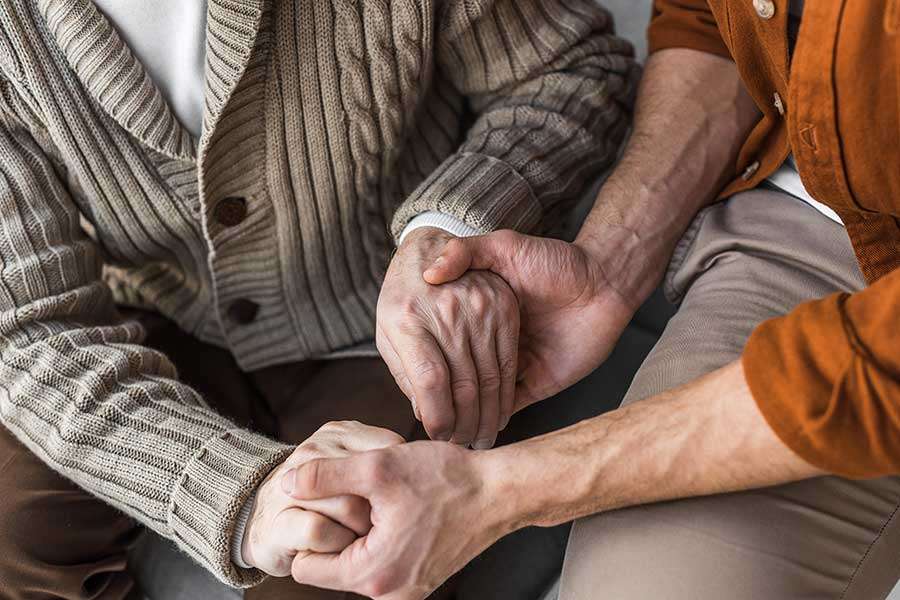Recovery Is Not a Solo Journey
In the early days of sobriety, it’s normal to come up against some challenges – deciding to get sober is a huge emotional journey. In the harder moments, we might fall into the misconception that we have to go it alone as we used substances, so we should fix it.
While it is true that recovery is our responsibility, this does not mean that the journey has to be a solo one. There are many different types of help that one can access:
- Treatment and recovery centers
- Medical detoxes
- Group therapy and support groups
- Recovery podcasts and literature
- Ongoing medical treatment
Reaching out to others in recovery is very useful when embarking on the process towards long-term sobriety. So, it is a good idea to turn to support groups to build a social network centered on recovery!
Reach Out to Support Networks
For somebody suffering from a substance abuse disorder, reaching out for help may be very difficult. It could feel uncomfortable – especially if the relationship was tested by addiction. However, admitting that one needs help is often the first step on the road to recovery, and it can be a pleasant surprise how many doors open after taking this first step.
It may even be what our loved ones were waiting for – a chance to reconnect with us. Studies show that friends and relatives play such a key role in recovery, and focusing on empowering these social networks to adequately support their loved ones can be crucial on the road to long-term sobriety.
Showing extended support systems and medical practitioners that we are ready to take steps towards getting sober may give a deep sense of liberation. Open communication is a great tool that can help promote massive changes.
The Pain Doesn’t Last Forever
One of the challenges of recovering from substance dependency is the initial withdrawal. When someone weans themselves off drugs and alcohol, there may be side effects that range from mild to severe.
Experiencing these symptoms may be a little bit frightening at first, but it is important to be prepared for the different aspects of the journey towards sobriety. Luckily, many medical options and therapies are out there to help alleviate the pain. Though at times unpredictable, these side effects are no reason to avoid getting sober!
It Comes With Ups and Downs
Getting sober isn’t always easy, and you’ll no doubt experience some difficulties along the way. There may be dark days in which one’s mind will race with thoughts of self-doubt. Everyone struggles sometimes, and while feeling this way is commonplace, it’s nothing that can’t be overcome.
Affirmation is key to building self-esteem, which can make us feel more ready to take on challenges. So, it is important to be gentle and offer rewards for checkpoints along the way. Learning to forgive oneself for having an addiction can be one of these checkpoints.
Read more: Drug Detox Orange County
Recovery is a rollercoaster – full of ups and downs. Perceptions of failure should not distract someone from the positive achievements they make when on the road to sobriety. Turn negative thinking on its head because deciding to make positive changes for ourselves is definitely something to be rewarded at any point in life.
Finding New Ways to Enjoy Ourselves
A misconception about perception-altering substances is that they increase one’s ability to have fun and let loose (especially at music events and clubs). Recreational substance use may well be an initial gateway to developing a substance abuse disorder. This can mean that socializing and recreational events become directly associated with drugs and alcohol. So when starting the journey towards sobriety, one may question how they are ever going to enjoy themselves again. Getting sober is not the end to recreational activities, and it is most definitely not the end to socializing.
Sobriety opens up space for healthy forms of socializing and enjoyment. It can allow open space for deeper connections to hobbies and loved ones, paving the way for more authentic forms of engaging in social activities. There are even recreational therapy groups that aim to rehabilitate an individual through the use of leisure activities and social cohesion. Though it is difficult to predict how anyone’s social life will be in the future, sobriety by no means brings an end to us enjoying ourselves and connecting with others.
Almost everything worth doing in life comes with challenges. Recovering from addiction can be one of the most difficult processes to embark on. Rewarding ourselves along the way, reconnecting with support networks, and accepting our mistakes are achievements that work towards the end goal of long-term sobriety. And along the way, it is important to remember that every positive step matters.






